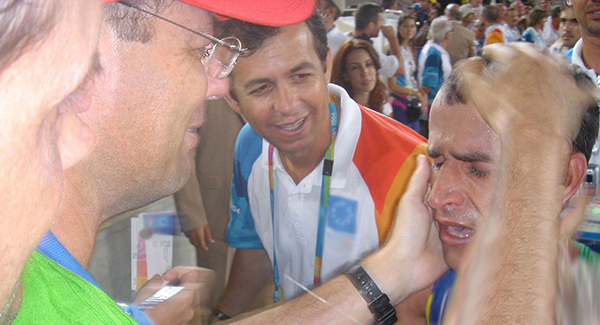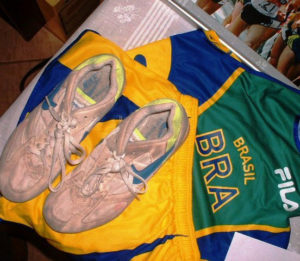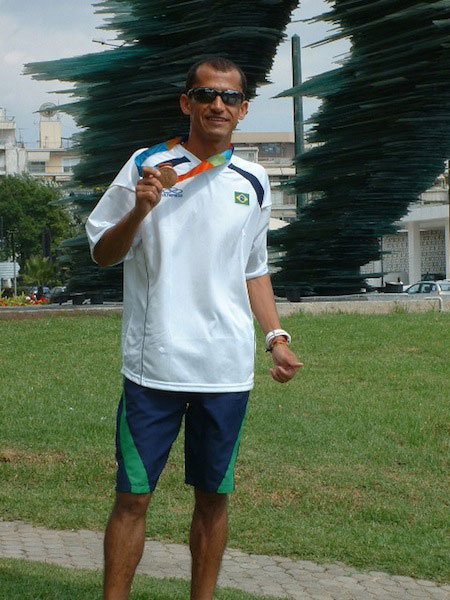Vanderlei Cordeiro de Lima’s courage shook the world during the 2004 Athens Olympic Games when he was attacked by a spectator while leading the men’s Marathon. Despite missing out on the gold medal and finishing in third position, the episode has highlighted de Lima as an athlete and given him plenty of media attention.
Yet, there’s a lot more in de Lima’s life story that’s worth knowing and needs to be recognized. A personal story and a career full of hard work and sacrifices which at the end have paid off greatly.
Vanderlei, the best South American male athlete of 2004 was born in Cruzeiro do Oeste, in the State of Paraná and has 6 siblings (2 brothers and 4 sisters).
His mother, Aurora is still alive, but his father, José, passed away few years ago.
“I was raised in Tapira, also in Paraná, and I used to help my family doing little jobs on farms. My first contact with the sport was through football, and my dream was to play for a professional team. I used to be a right back defender.”
“I was introduced to athletics at the age of 14. A Physical Education teacher saw some potential in me, and my first victory was at a road race in the interior of Paraná.”



















